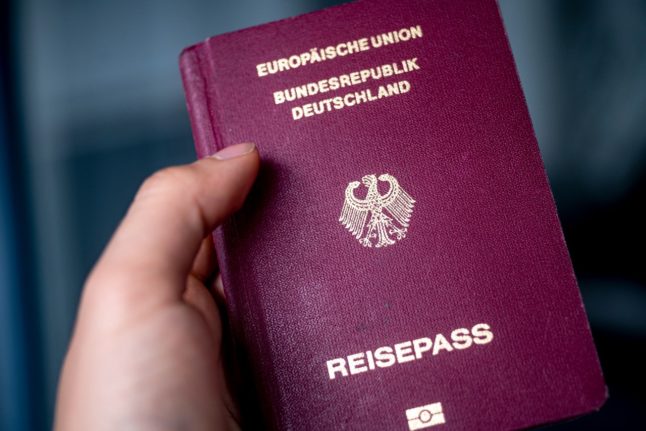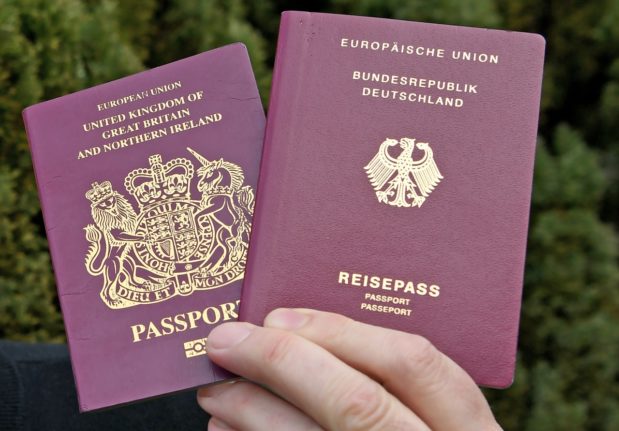German citizens are allowed to travel to 190 countries and territories without first applying for a visa.
This puts Germany’s passport in joint second place in the “Henley Passport Index 2023” – along with Italy and Spain, whose passports also open up 190 borders.
Only Singapore’s passport offers access to more destinations (192) according to the London law firm Henley & Partners, which runs the annual ranking.
Singapore is thus the new number one in the passport ranking.
For five years the top passport title went to Japan, which now only ranks third, along with Finland, France, Luxembourg, Sweden, South Korea and Austria.
Passport holders from these countries can enter 189 other countries without having to apply for a visa first. That means they can receive both visa-free entries and unbureaucratic visa issuance on arrival.
New citizenship legislation, set to be passed later this year, in part aims to make it easier for non-EU foreigners in Germany to receive a German passport in addition to their current passport.
With a few exceptions, most have been required to give up the citizenship of their home country upon obtaining German citizenship.
READ ALSO:
- Will Germany’s citizenship law still go to a cabinet vote before summer?
- The vocabulary you need to understand the German citizenship process
Which countries dropped in the ranking?
While the UK passport is now back in fourth place – two up from last year – after falling for several years in the ranking. However, the US passport is not performing well.
“The US has dropped further by two ranks to eighth place, continuing its slide,” a statement on the ranking said. It is possible to travel to 184 countries with a US passport without applying for a visa.
For the past 18 years, Henley & Partners has listed the most powerful passports in the world.
“The trend is towards greater freedom to travel,” the firm told Spiegel Online. The average number of countries to which people can travel without a visa has almost doubled since 2006: back then, the average was 58 countries, whereas today it stands at 109.
However, the differences between the most powerful and weakest passports have widened, the firm said.
“The global mobility gap between the countries at the top and bottom of the index is larger than ever,” it said.
Top-ranked Singapore offers 165 more countries to which citizens can travel without a visa compared to Afghanistan, the last place.
In the past ten years, Singapore, which has always been quite high in the ranking, has made another 25 countries visa-free for its citizens.
A passport is not everything
But of course a travel document is not everything when it comes to how freely people can travel. This becomes particularly clear in times of crisis, wrote Spiegel.
“People affected by poverty often do not have a passport anyway. During the pandemic, the so-called power of passports was a very theoretical quantity in the face of travel bans and border closures,” they said. “Russia’s invasion of Ukraine also shows how quickly a passport can lose value for certain citizens.”
The fact that travel is becoming more and more expensive also means that many people can no longer afford it, they said. “If your banks account is empty, a passport from Singapore won’t help.”
The same logic holds true for Germany, where more than one in five citizens currently can’t afford a week-long holiday, according to Eurostat. Single parents and pensioners are the hardest hit.
READ ALSO: 8 reasons why German citizenship trumps permanent residency



 Please whitelist us to continue reading.
Please whitelist us to continue reading.
Member comments